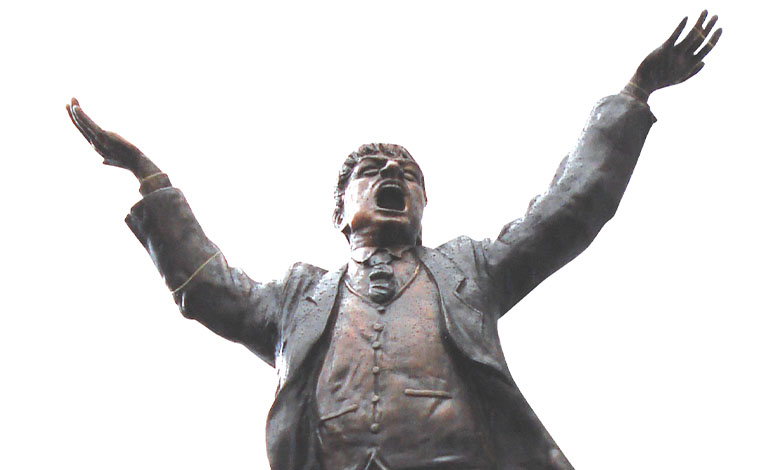TRADE UNION DESK: The next scandal(s)

The extraordinary success of Mr Bates vs the Post Office has highlighted the truth of an adage used previously in this column: the real scandals are perfectly legal, writes the ICTU’s John O’Farrell.
The great American radical hack IF Stone used to say of his local newspaper that “you had to read every page of The Washington Post, so you did not miss stories that belonged on the front page”.
The Post Office scandal falls into that category. Most of the UK’s national media missed it entirely or mentioned in passing, then dismissed it, with the usual exception of Private Eye and specialist press such as Computer Weekly. The political culture of Westminster depends upon an easily distracted lobby with highly limited attention spans and the indulgence of the offshore ownership of Fleet Street’s finest content providers.
We can see this on the odd occasion when Northern Ireland becomes ‘serious’ enough for the attention of the Prime Minister’s travelling court, with the expertise of local journalists elbowed aside in favour of those who get to ‘speak truth to power’: ‘Let me through – I am in the lobby!’
That style of ‘gentlemanly generalist’ is part of the problem with the trivial and policy-free style which dominates political journalism in the UK and perfected at The Sunday Times. The moral or ethical, let alone practical, value of a policy is sideswiped by the consideration of it as good/bad for the career prospects of the politician associated with it.
To mention as an example, consider a policy which is almost entirely framed around the stability of Rishi Sunak’s leadership – his morally squalid, performatively cruel, and completely unworkable wheeze to ship out asylum seekers to a Rwanda.
The framing of this has been as the latest instalment of Tory psychodrama, the latest act in a long run of internal party squabbles since the Brexiters accidently won their referendum. Treating politics as a soap opera is nothing new, going right back to Suetonious and his hugely entertaining ‘history’ of The 12 Caesars, but unless we want to leave little else but magnificent ruins, we really ought to examine the actions of rulers through the lenses of economics, justice, and even basic ethics.
Here are some other examples of stories hidden away in the middle pages of old printed papers or buried beneath clickbait on news aggregation sites.
Grenfell, the fire, the deaths, the contracts, and the grief are being forensically detailed in the ongoing public inquiry. Almost ignored by the ‘nationals’, it is being comprehensively covered by insidehousing.co.uk.
Another inquiry underway and delivering real insights into the ethics of our rulers and the shockingly diminished capacity of our health system is the UK Covid-19 inquiry. Huge amounts of evidence are being gathered and published on its website. Private Eye is good at covering it when the less famous are giving crucial evidence.
The names and personal details of 3,213 workers were held covertly on a construction industry blacklist, barring them from getting work for carrying out legitimate trade union activities, such as health and safety. In May 2016, Unite succeeded in winning compensation for 256 members with more than £10 million in compensation as a result. Unite, working with Thompsons Solicitors, waged a five-year fight against Sir Robert McAlpine Ltd and Balfour Beatty Engineering Services as well as more than 30 other firms. That one is still ongoing.
Deaths by Welfare is a campaign group trying to expose the thousands of premature deaths of people with disabilities linked to welfare ‘reform’ over the last decade. One piece of their research connects just one area of the 2010 coalition government’s welfare reforms with an extra 590 suicides between 2010 and 2013.
555 sub-postmasters and sub-post-mistresses formed the core of the campaign dramatised by ITV and Toby Jones last month. Like the disability cases, each one was technical, complicated to explain and perfectly legal. Only when a pattern emerged of similarities and common obstructions did their activity get noticed and belatedly addressed. Only when working together, could the victims attain justice. Only then were they considered ‘interesting’ enough for national attention. And that is a problem for all of us.





